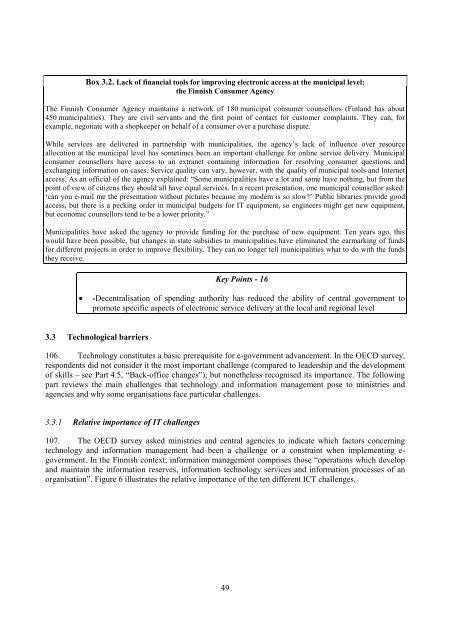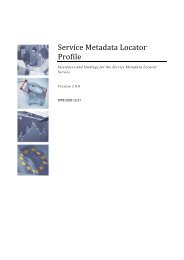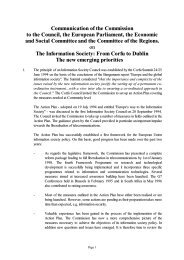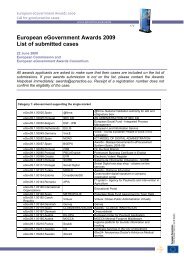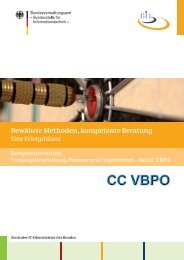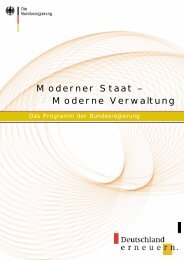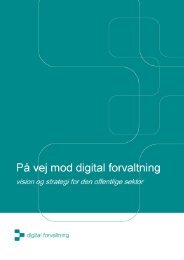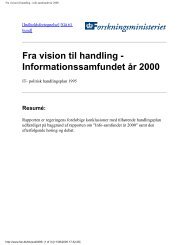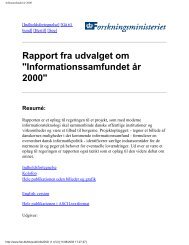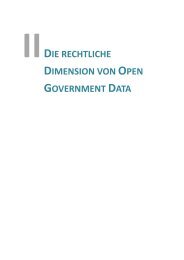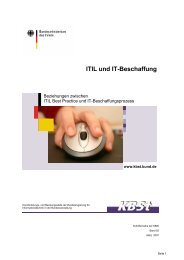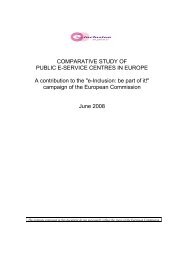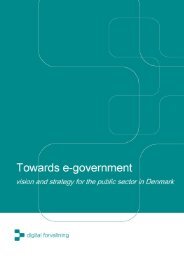e-GOVERNMENT IN FINLAND - ePractice.eu
e-GOVERNMENT IN FINLAND - ePractice.eu
e-GOVERNMENT IN FINLAND - ePractice.eu
Create successful ePaper yourself
Turn your PDF publications into a flip-book with our unique Google optimized e-Paper software.
Box 3.2. Lack of financial tools for improving electronic access at the municipal level:<br />
the Finnish Consumer Agency<br />
The Finnish Consumer Agency maintains a network of 180 municipal consumer counsellors (Finland has about<br />
450 municipalities). They are civil servants and the first point of contact for customer complaints. They can, for<br />
example, negotiate with a shopkeeper on behalf of a consumer over a purchase dispute.<br />
While services are delivered in partnership with municipalities, the agency’s lack of influence over resource<br />
allocation at the municipal level has sometimes been an important challenge for online service delivery. Municipal<br />
consumer counsellors have access to an extranet containing information for resolving consumer questions and<br />
exchanging information on cases. Service quality can vary, however, with the quality of municipal tools and Internet<br />
access. As an official of the agency explained: “Some municipalities have a lot and some have nothing, but from the<br />
point of view of citizens they should all have equal services. In a recent presentation, one municipal counsellor asked:<br />
‘can you e-mail me the presentation without pictures because my modem is so slow?’ Public libraries provide good<br />
access, but there is a pecking order in municipal budgets for IT equipment, so engineers might get new equipment,<br />
but economic counsellors tend to be a lower priority.”<br />
Municipalities have asked the agency to provide funding for the purchase of new equipment. Ten years ago, this<br />
would have been possible, but changes in state subsidies to municipalities have eliminated the earmarking of funds<br />
for different projects in order to improve flexibility. They can no longer tell municipalities what to do with the funds<br />
they receive.<br />
Key Points - 16<br />
x -Decentralisation of spending authority has reduced the ability of central government to<br />
promote specific aspects of electronic service delivery at the local and regional level<br />
3.3 Technological barriers<br />
106. Technology constitutes a basic prerequisite for e-government advancement. In the OECD survey,<br />
respondents did not consider it the most important challenge (compared to leadership and the development<br />
of skills – see Part 4.5, “Back-office changes”), but nonetheless recognised its importance. The following<br />
part reviews the main challenges that technology and information management pose to ministries and<br />
agencies and why some organisations face particular challenges.<br />
3.3.1 Relative importance of IT challenges<br />
107. The OECD survey asked ministries and central agencies to indicate which factors concerning<br />
technology and information management had been a challenge or a constraint when implementing egovernment.<br />
In the Finnish context, information management comprises those “operations which develop<br />
and maintain the information reserves, information technology services and information processes of an<br />
organisation”. Figure 6 illustrates the relative importance of the ten different ICT challenges.<br />
49


